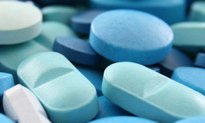The Information Standards Board for Health and Social Care has approved the NHS dictionary of medicines and devices as a fundamental standard for the NHS.
The move means that the dictionary – which is better known as the dm+d – should be used across the NHS and by its suppliers when referring to medicines.
In a statement, the ISB said the move would improve the exchange of clinical information and improve the safety of prescribing.
"Using a single drug terminology will enable information about patients’ medicines to transfer more effectively between different healthcare settings, reducing the risk of medication mistakes made by human error."
The dm+d is already used by the Electronic Prescription Service and the NHS Summary Care Record.
Dr Charles Gutteridge, national clinical director for informatics at the Department of Health, said other clinicians should now "accelerate the use of this common medical dictionary for the benefit of the patients we care for."
The recently issued NHS information strategy flagged up the need for It systems to "use the same terminology to exchange coded information", citing SNOMED CT and the dm+d as examples.
Heidi Wright, from the Royal Pharmaceutical Society, backed the ISB’s move.
"We believe that the opportunities created for using the dm+d are substantial in terms of interoperability, opportunities for comparison and reducing variation, and enhancing aptient safety," she said.
As examples of areas in which the use of the dm+d could improve safety, she gave "reducing risks associated with system interfaces and providing links to clinical systems such as the British National Formulary."

